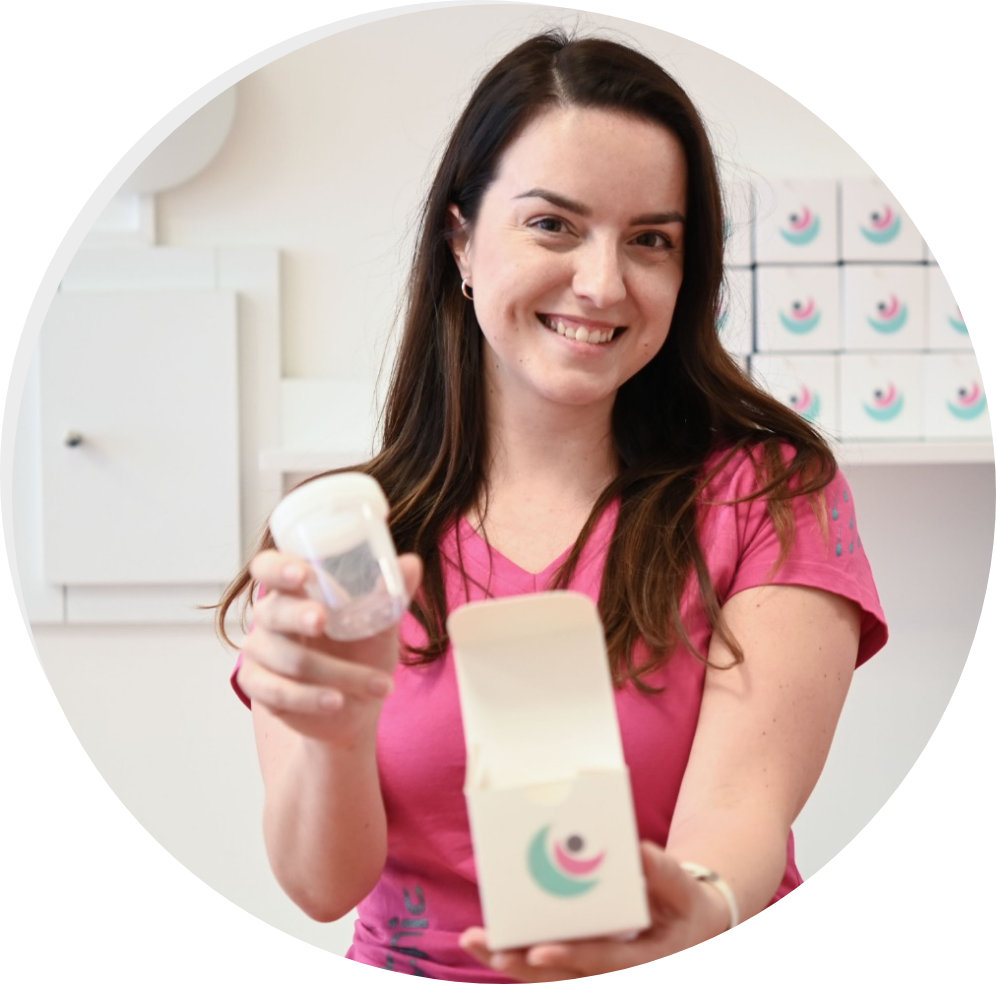ICSI – Intracytoplasmic Sperm Injection
In this micromanipulation method, a single sperm is injected directly into the egg. ICSI is performed utilising a special device – a micromanipulator. The success rate of fertilization is as high as 90 %.
This method is suitable for couples with poor quality sperm or couples where a low number of eggs have been retrieved from the woman. In some couples (severe spermatogenesis disorder) the use of this method is unavoidable. The usage of the ICSI method, i.e., the selection of both sperm and egg, significantly increases the likelihood of producing higher quality embryos compared to conventional in vitro fertilization.
MACS – Magnetic-Activated Cell Sorting
MACS is a method of sperm processing with the use of specific antibodies on magnetic microspheres and magnets. This method enables the removal of antibody-labelled defective sperm cells from the semen and retention of only live undamaged sperm cells, which are later used for assisted reproductive techniques. The method is suitable for patients with poor quality sperm, patients with a low rate of egg fertilization after IVF with ICSI, or after repeated failure of IVF treatment cycles without apparent cause.
MFSS – Microfluidic Sperm Sorting
The MFSS method is based on the principle of natural sperm selection by passage through micro-barriers imitating the natural environment of female reproductive system. In this method, sperm in the ejaculate are placed on a special chip and spontaneously pass through microchannels into the fertilization medium.
MFSS is mainly performed in couples with embryonic arrest in previous cycles, with repeated abortions or embryo transfers without embryo implantation and in older women.
TESE/MESA
If azoospermia (absence of any sperm in the ejaculate) is repeatedly confirmed, in some cases it is possible to obtain sperm by surgical methods – MESA (Micro Epididymal Sperm Aspiration), in which sperm are microsurgically extracted from the epididymis, or TESE (Testicular Sperm Extraction), in which a small piece of tissue is surgically removed from the testicle. The material is subsequently processed and, if sperm are retrieved, they can be used for the ICSI method of fertilization.



